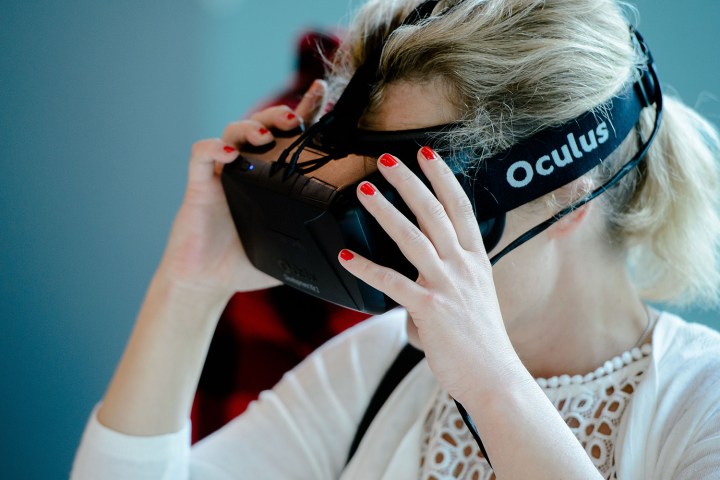
VRScore is intended to be a tool that gives users an accurate impression of how well their system will fare running resource-intensive VR content — and it shows off the capabilities of the technology in the process. Crytek’s CryEngine has been used to construct the Sky Harbor, an arresting staging area built specifically for the test.
The benchmark features tests for interactive VR, 360-degree VR video, and VR spatial audio performance, according to a report from Tom’s Hardware. The tool will also be able to compare your PC’s results with performance rankings for its GPU, CPU, and for the headset you’re using.
While a free version of VRScore will be available, some functionality will be locked behind its paid Pro version, with corporate licences also set to be offered. The paid versions of the software will also include a piece of hardware that’s being called VRTrek.
VRTrek connects to your PC via a standard 3.5 mm stereo microphone jack, and uses dual photo-transistors to simulate the human eye. The device helps VRScore perform tests relating to latency, screen persistence, and dropped frames.
VRScore is still under development, but Basemark and Crytek expect that its public launch will take place in June 2016. The companies are also working on a mobile version of the benchmarking utility intended for use with devices like Samsung’s Gear VR, but no details on that version were made public at this time.


